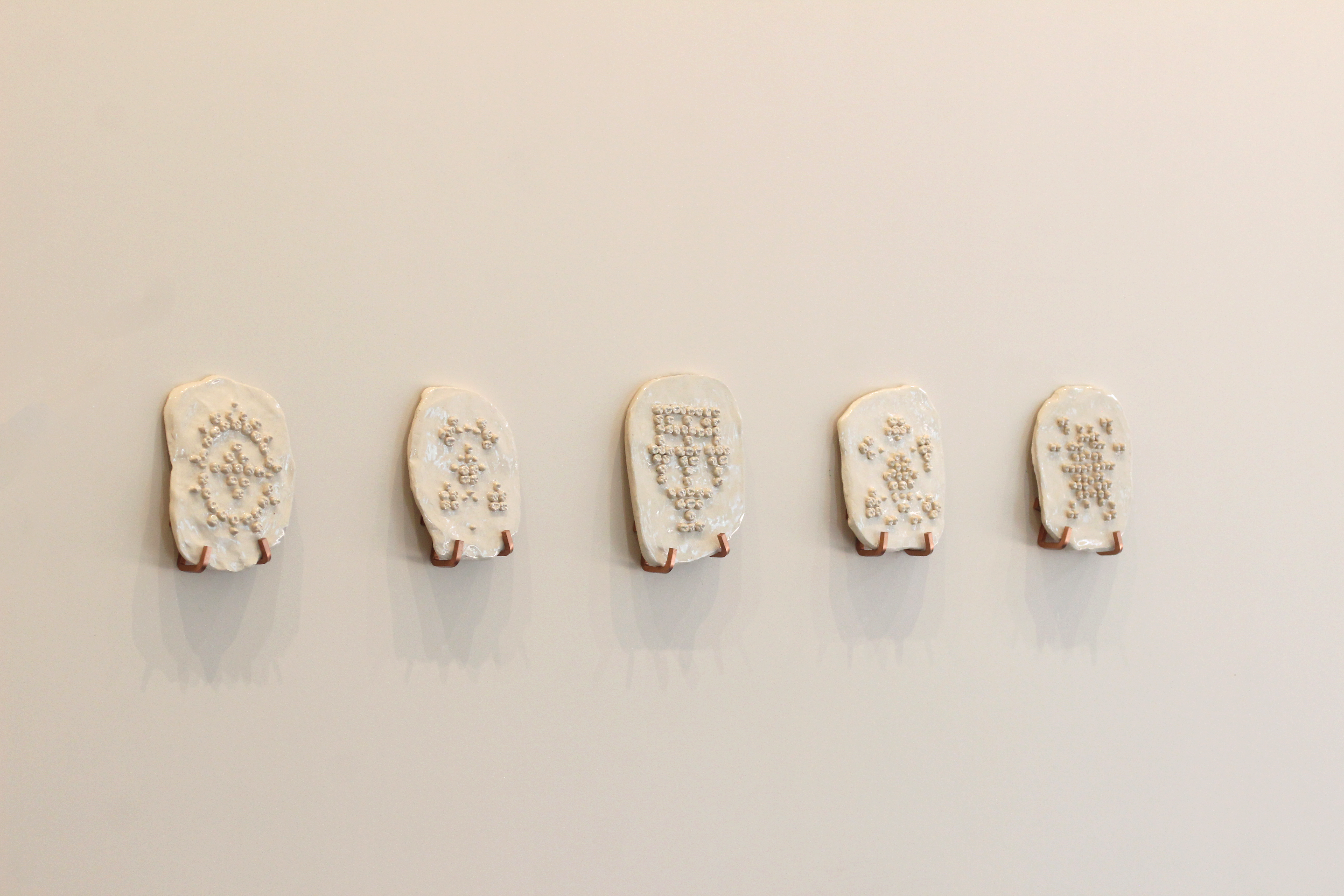Are your memories of me enough for you? Solo exhibition at 421 Arts Campus, Abudhabi
30th January - 4th May 2025
programme



works:
Love that Reassembles Fragments, 2024
ceramic sculptures made using casts of the artist’s baby teeth on a slab, metal armature
Foreign Bodies I, 2024
oil paint on wood panel
50 x 25.4 cm
Lion Attacking a Dromedary, 2025
copper plate etching on a museum sign podium
tooth and a folly, 2025
Baby tooth from Father’s collection of artist’s baby teeth in metal container, glass, mirror
8.5 x 6cm
taste sweet, taste bitter, 2024
concrete relief sculptures
I endured for you, 2025
salt sculptures
words:
Art Africa Magazine, Issue 25, Review and interview by Brendon Bell-Roberts
The Maghreb Issue, Canvas Magazine
Canvas review by Rawaa Talass
